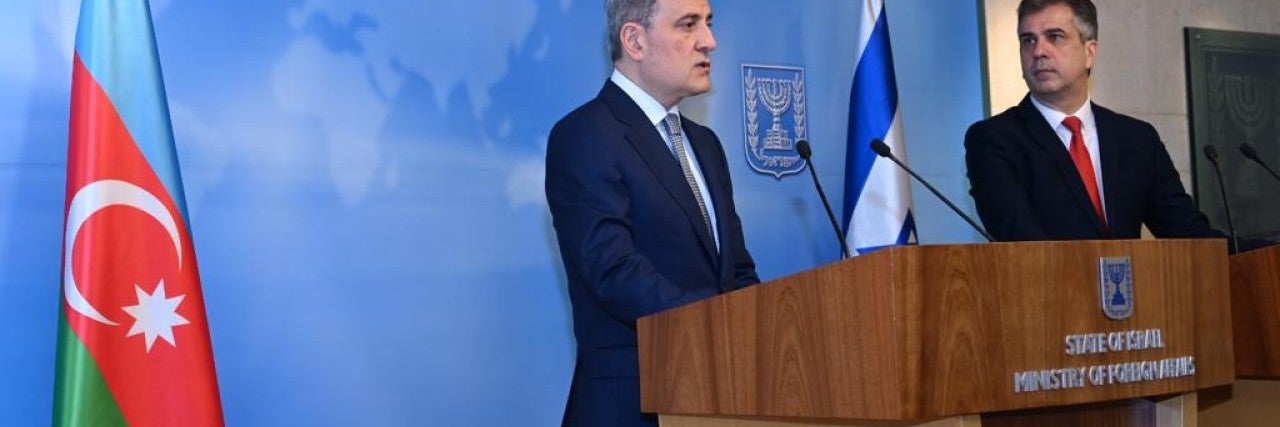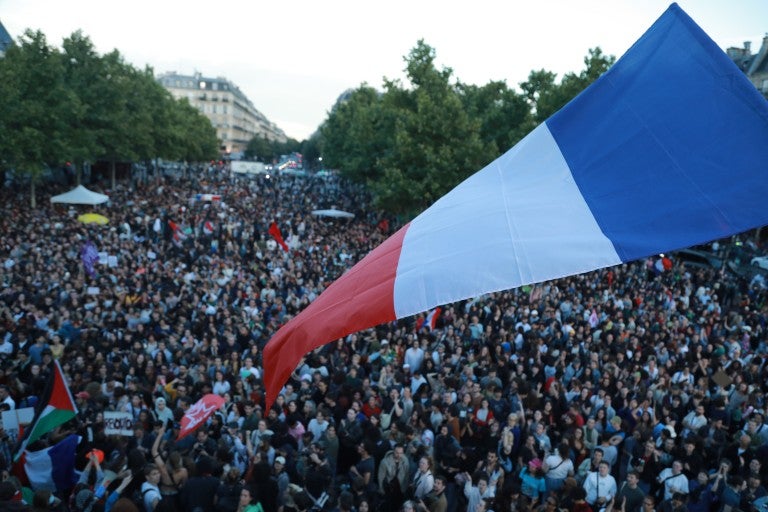March 30, 2023
Azerbaijan, which has enjoyed diplomatic relations with Israel since 1992, opened its embassy in Tel Aviv on March 29 – a significant step in the relationship between the world’s only Jewish state and the strategic Shi’ite Muslim-majority country that shares a land border with Iran.
Here’s what the embassy opening means for the Middle East and tensions with Iran.
Why are Israel and Azerbaijan allies?
Located in the strategic south Caucasus region between Russia to the north and Iran to the south, Azerbaijan achieved independence after the collapse of the Soviet Union in 1991. Shortly thereafter, Azerbaijan and Israel established diplomatic relations, and Israel opened an embassy in Baku a year later.
A Shi’ite Muslim-majority nation, like Iran, Azerbaijan has a rich history of acceptance of other faiths. The Jewish community in Azerbaijan dates back thousands of years, and today is home to around 30,000, who are protected under Azerbaijan’s constitution, and experience little to no antisemitism unlike their brethren elsewhere in the world.
Aside from its Jewish community, Azerbaijan sits along the oil-rich Caspian Sea and provides Israel with roughly 40 percent of its oil supply. In return, Israel has provided Azerbaijan with defense and intelligence support amid its on-and-off war with Armenia over the Nagorno-Karabakh region, which is occupied by Armenia, but internationally recognized as part of Azerbaijan.
In addition to security ties, both countries have cooperated in areas such as agriculture, water, and technology. Last year, Azerbaijan opened an official tourism office in Israel to increase awareness about Azerbaijan among Israelis. Azerbaijan named its first ambassador to Israel in January.
Azerbaijan is a strategic partner for Israel and the U.S., with common interests including energy security, the Iranian threat, and fighting Islamic terrorism.
While relations between Israel and Azerbaijan are not new, the deepening of ties represents another example of Israel’s growing relationship with the Muslim world in the wake of the groundbreaking 2020 Abraham Accords. These Accords established for the first time formal ties between Israel and Bahrain and the United Arab Emirates, respectively; shortly thereafter, Morocco re-established relations with Israel and Sudan and took key steps to normalize ties, as well. Israel enhanced ties with other Muslim-majority countries in Africa, most recently with Chad.
What does Azeri-Israeli Cooperation Mean for Iran?
Despite sharing the same faith and a long land border with Iran, ties between Azerbaijan and Iran have long been strained due to Iran’s support for Armenia over the disputed region of Nagorno-Karabakh. At the same time, Iran is also home to a significant Azeri minority population near its border with Azerbaijan, which has been a point of friction between the two nations.
In his news conference announcing the embassy opening with his Azerbaijani counterpart, Jeyhun Bayramov, Israel’s Foreign Minister Eli Cohen noted the cooperation between the two allies on the Iranian threat.
“Israel and Azerbaijan share the same perception of the Iranian threats,” said Cohen. “The Iranian ayatollah regime threatens both our regions, finances terrorism, and destabilizes the entire Middle East.”
With Iran continuing its pursuit of nuclear weapons, the deepening of ties between Azerbaijan and Israel could continue to provide both countries with mutual security in the face of the growing Iranian threat.
How has American Jewish Committee (AJC) supported strengthening Israel-Azerbaijan relations?
AJC has long maintained close contact with Azerbaijan through its offices across the U.S., Europe, and other locations. Over the decades, AJC delegations have visited Baku annually and met with senior Azerbaijani officials on the sidelines of the UN General Assembly every fall.
“AJC may well have been the pioneers in creating ties to Azerbaijan,” Israeli Prime Minister Netanyahu told the 2019 AJC Global Forum. He praised “AJC for the work that you did, making a lot of connections that we needed when we didn’t have the kind of open channels that we have today.”
Last year, AJC praised the Azerbaijani government for its decision to open an embassy in Israel.
“Azerbaijan has long been a trendsetter in relations between Israel and the Muslim world. Opening an embassy in Israel reflects close and wide-ranging Azeri-Israeli ties spanning more than three decades,” said AJC CEO Ted Deutch. “It is another example of the expanding cooperation between Israel and the Muslim world, including the historic Abraham Accords normalization agreements of 2020.”

